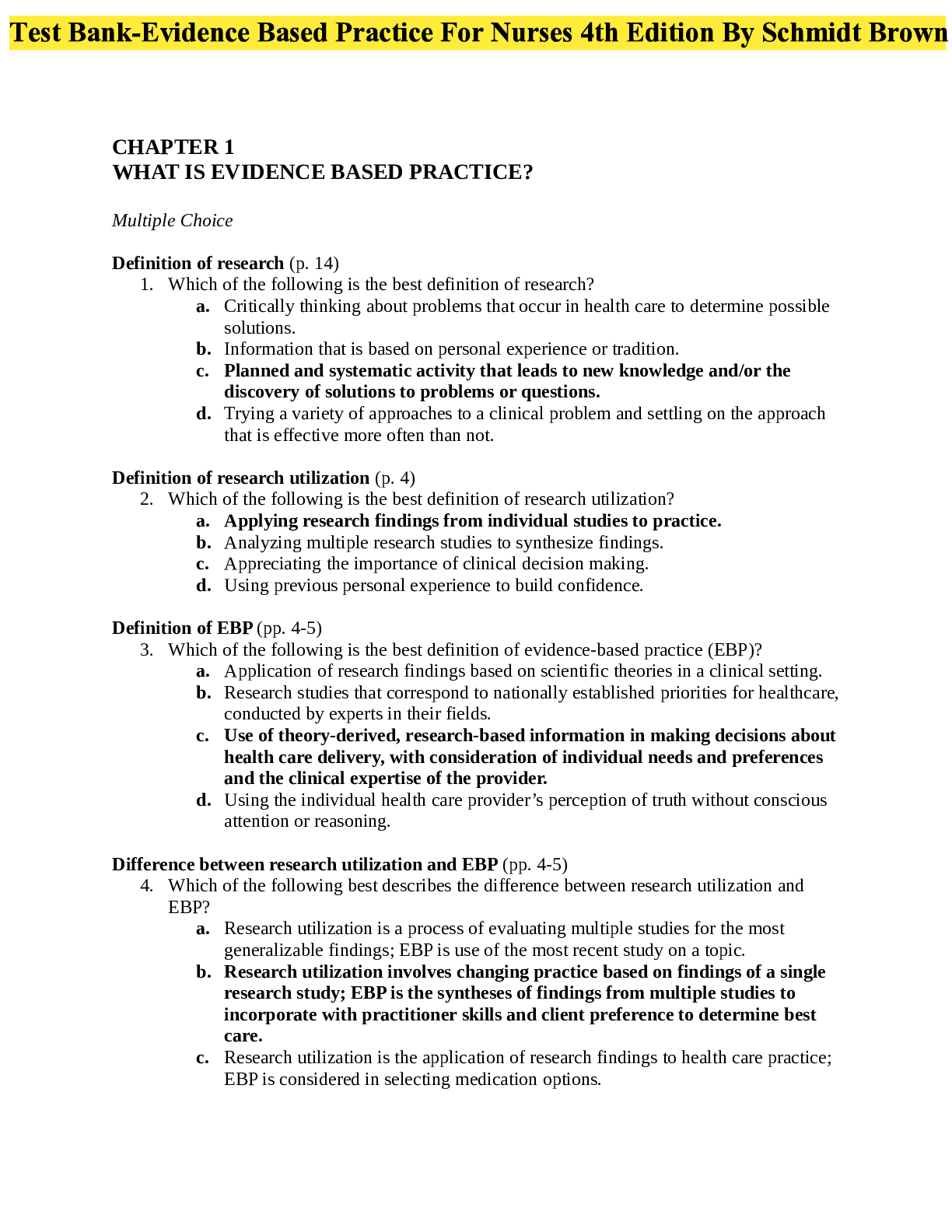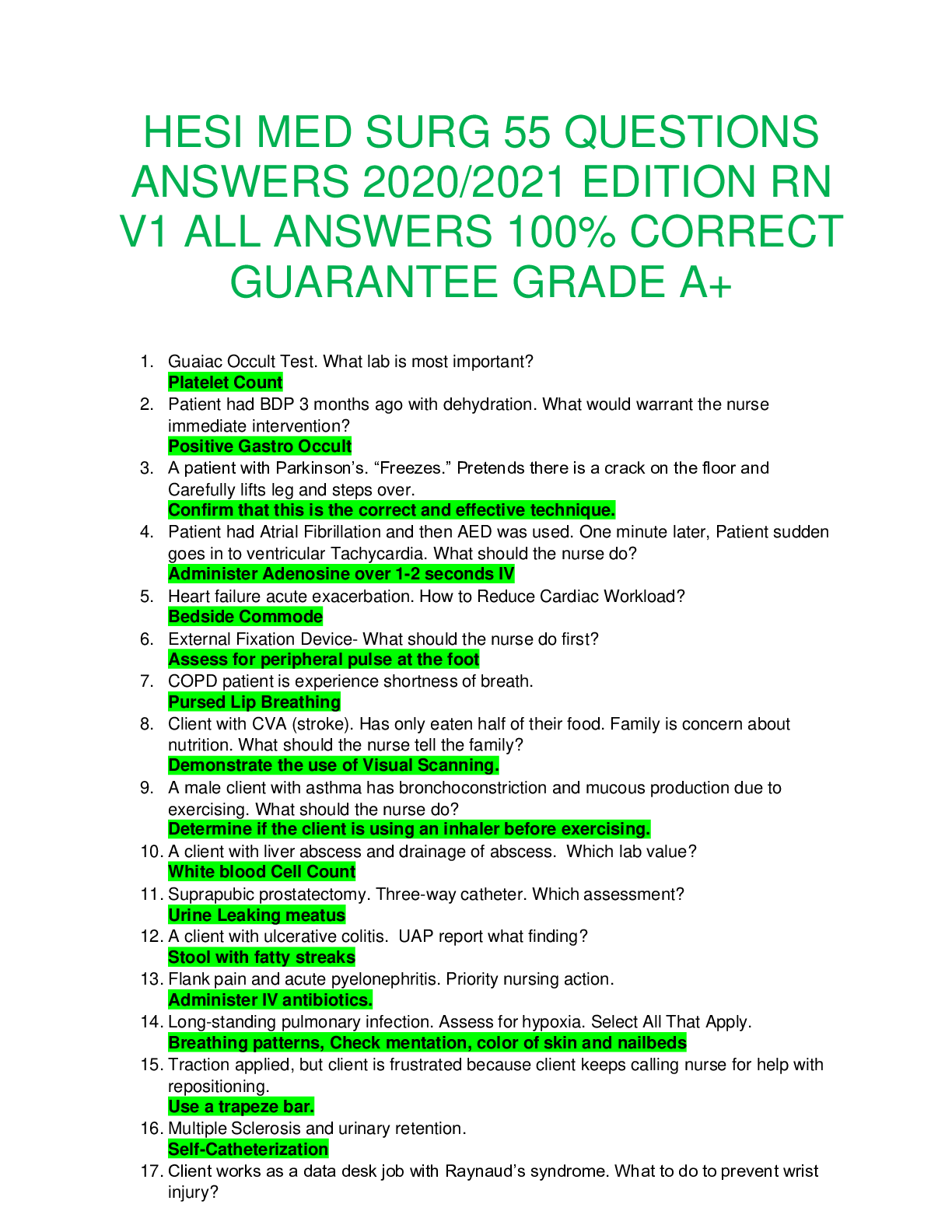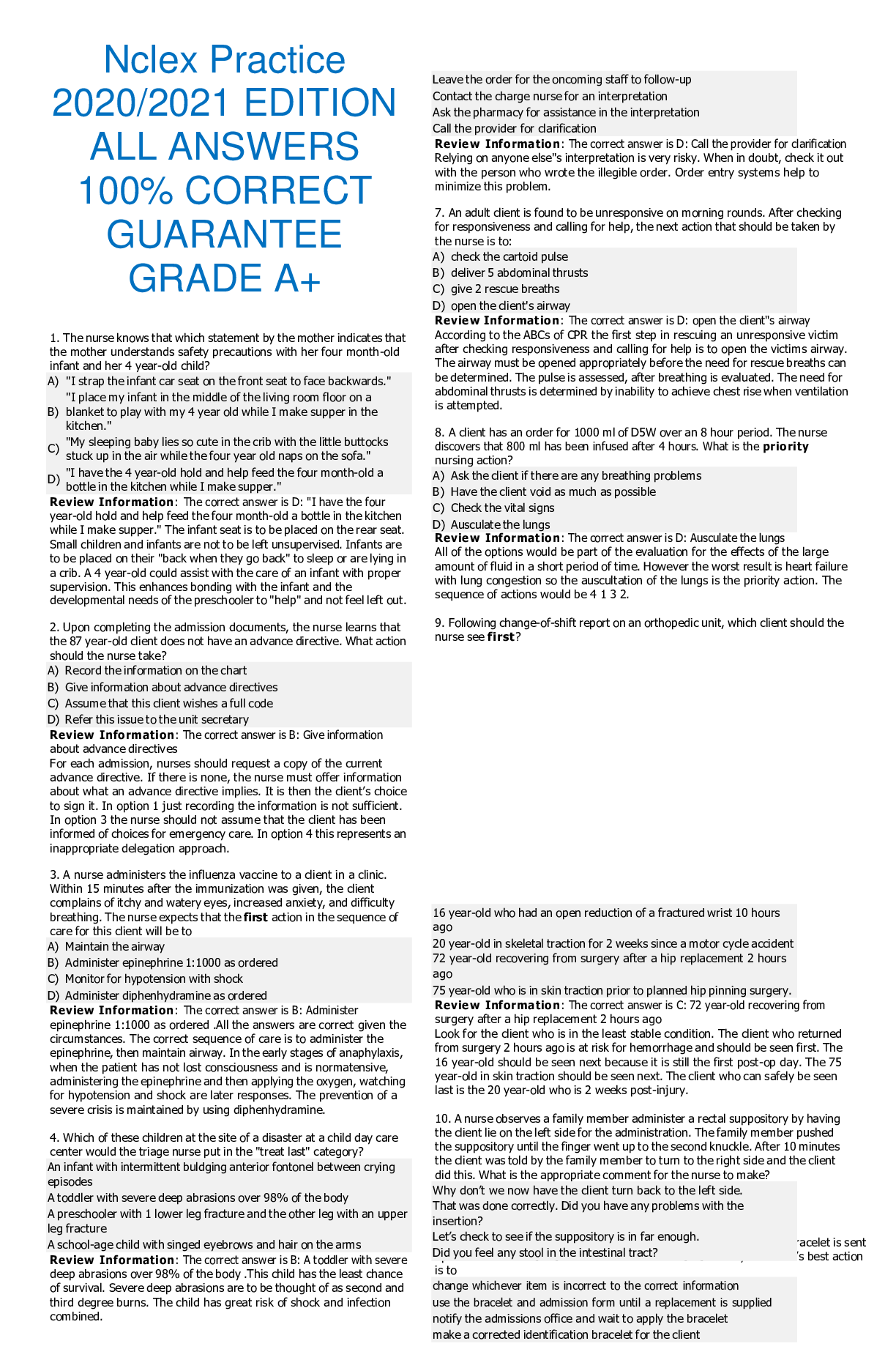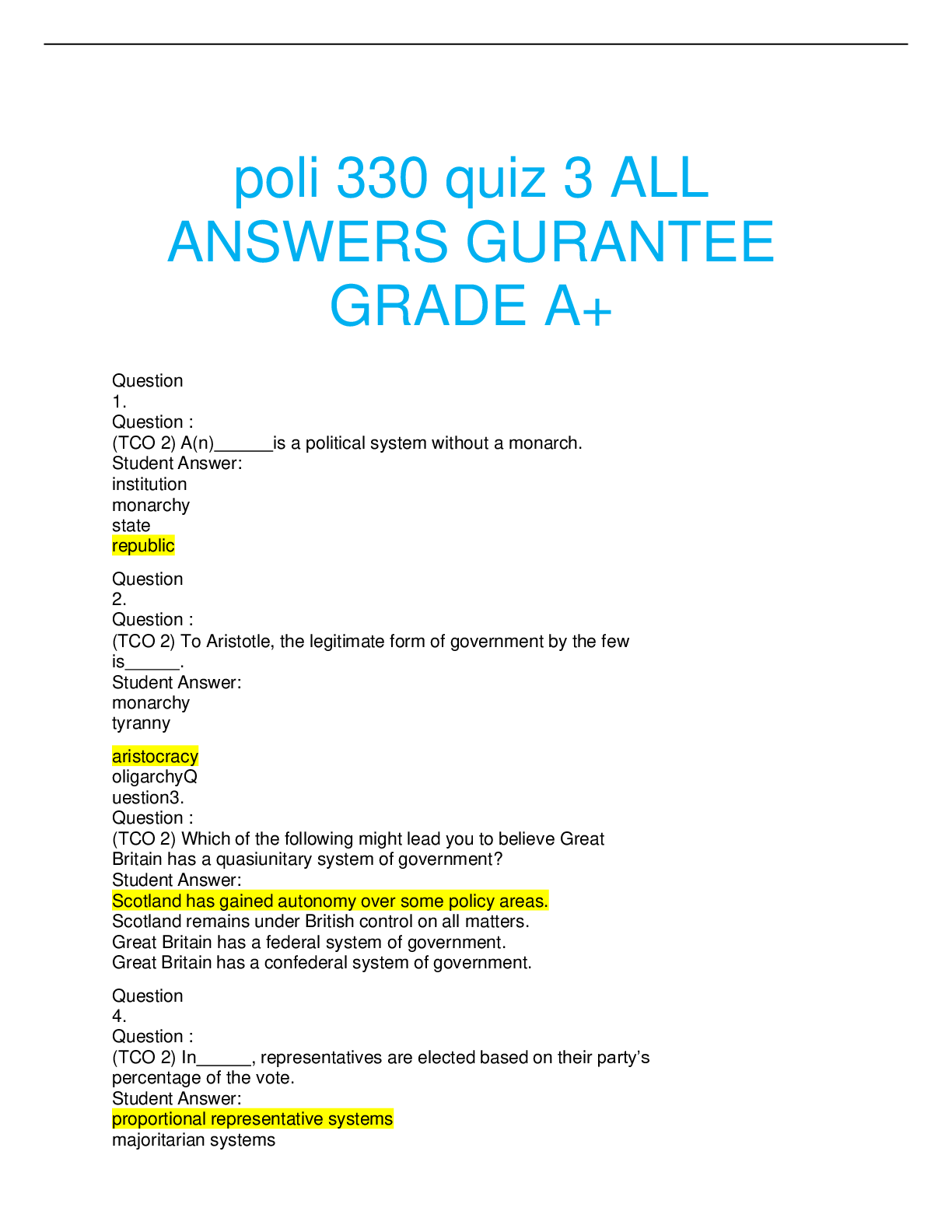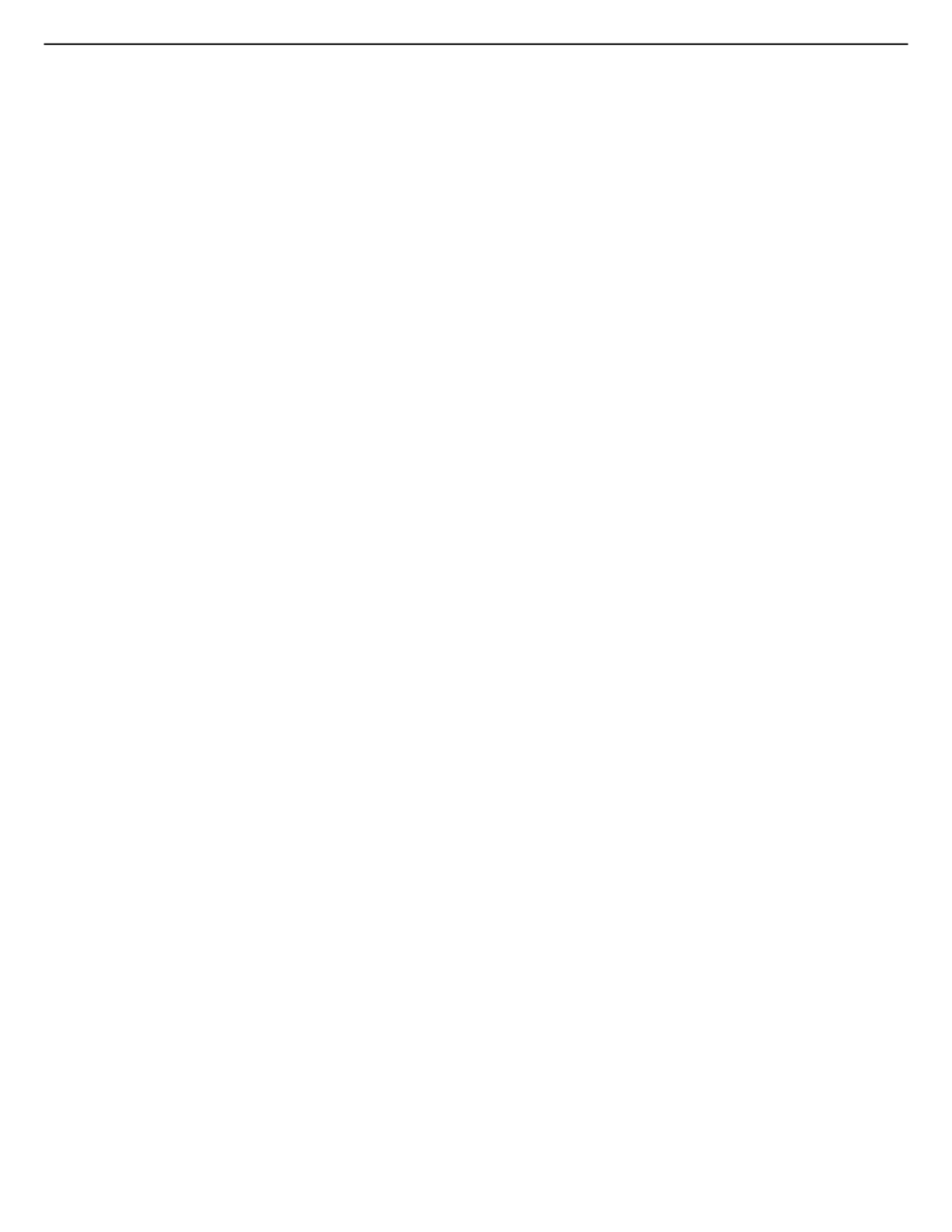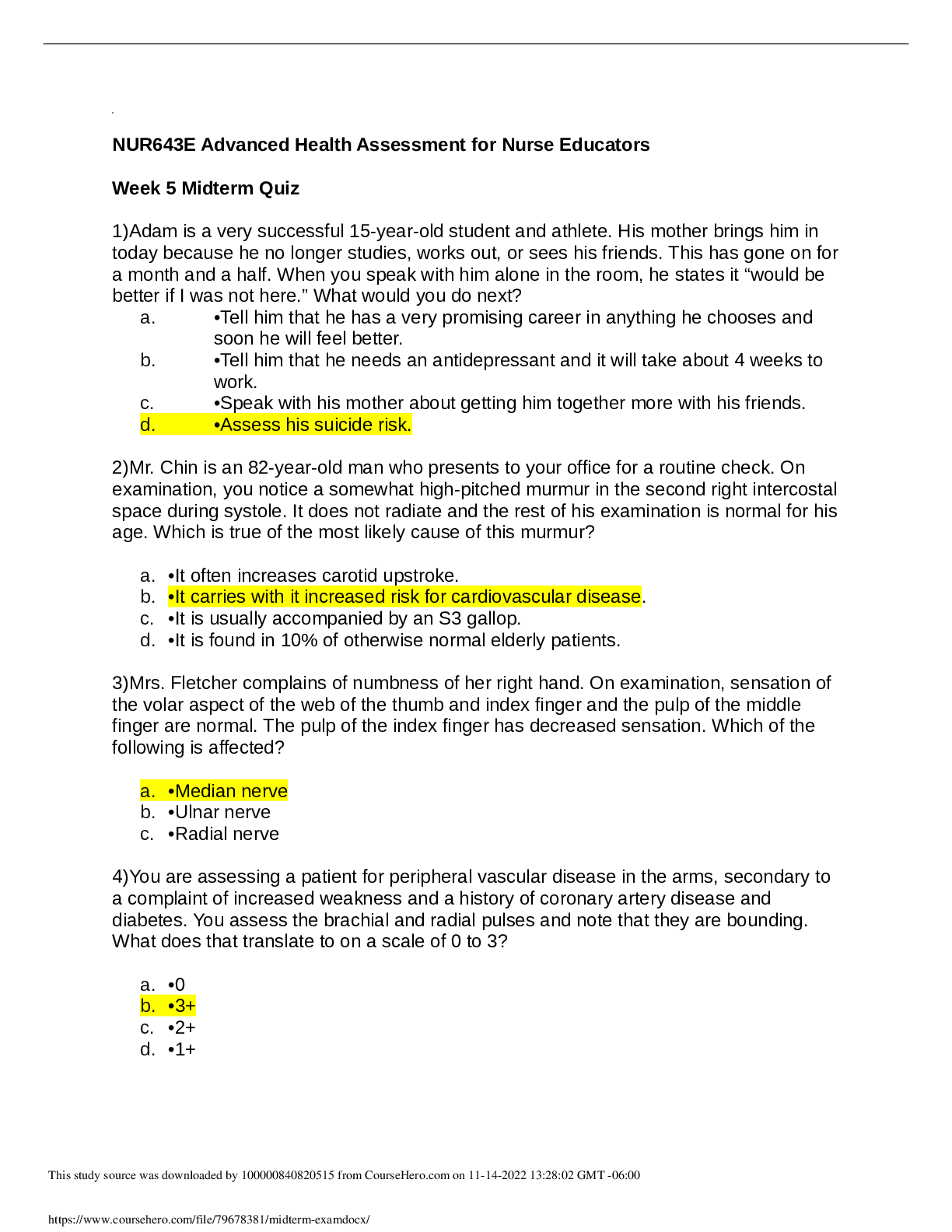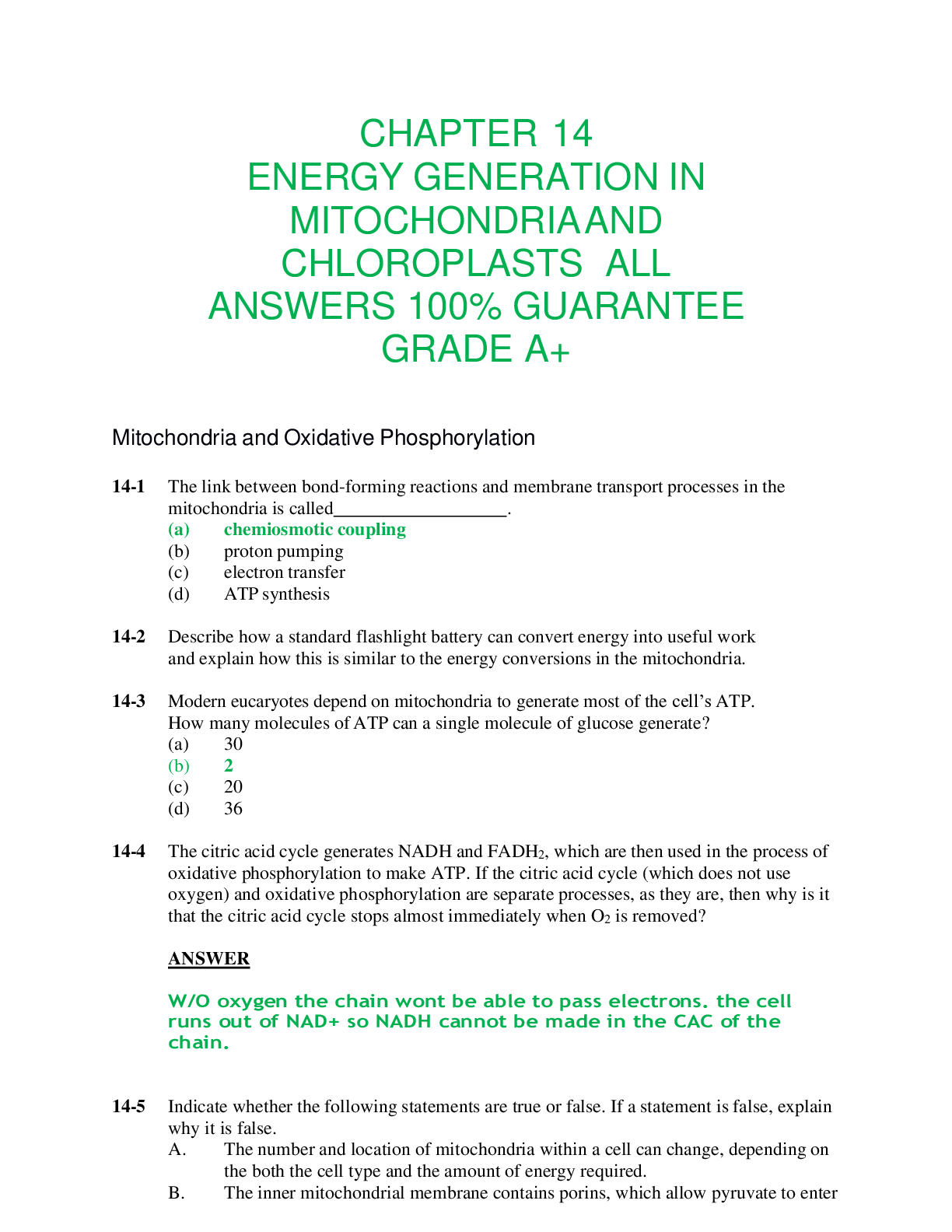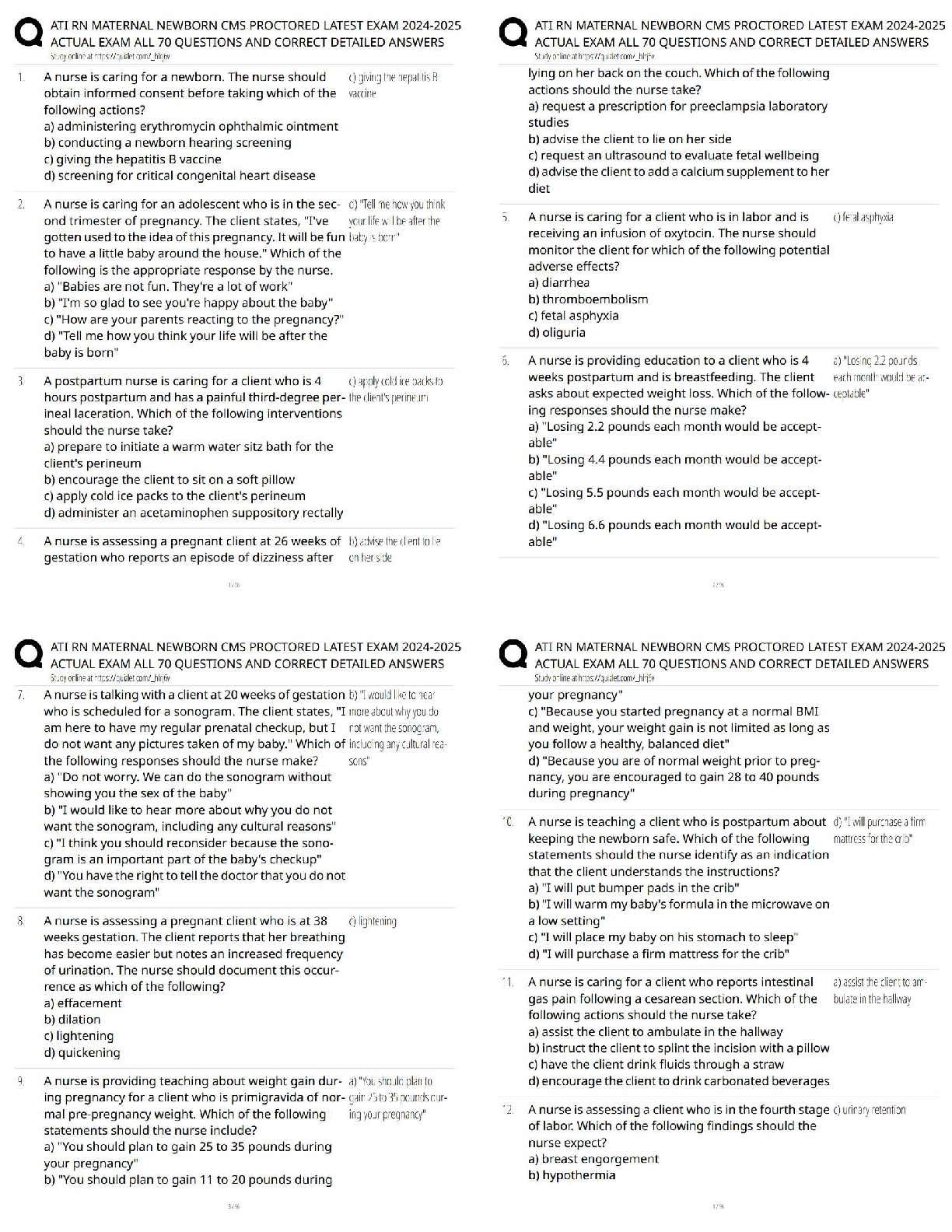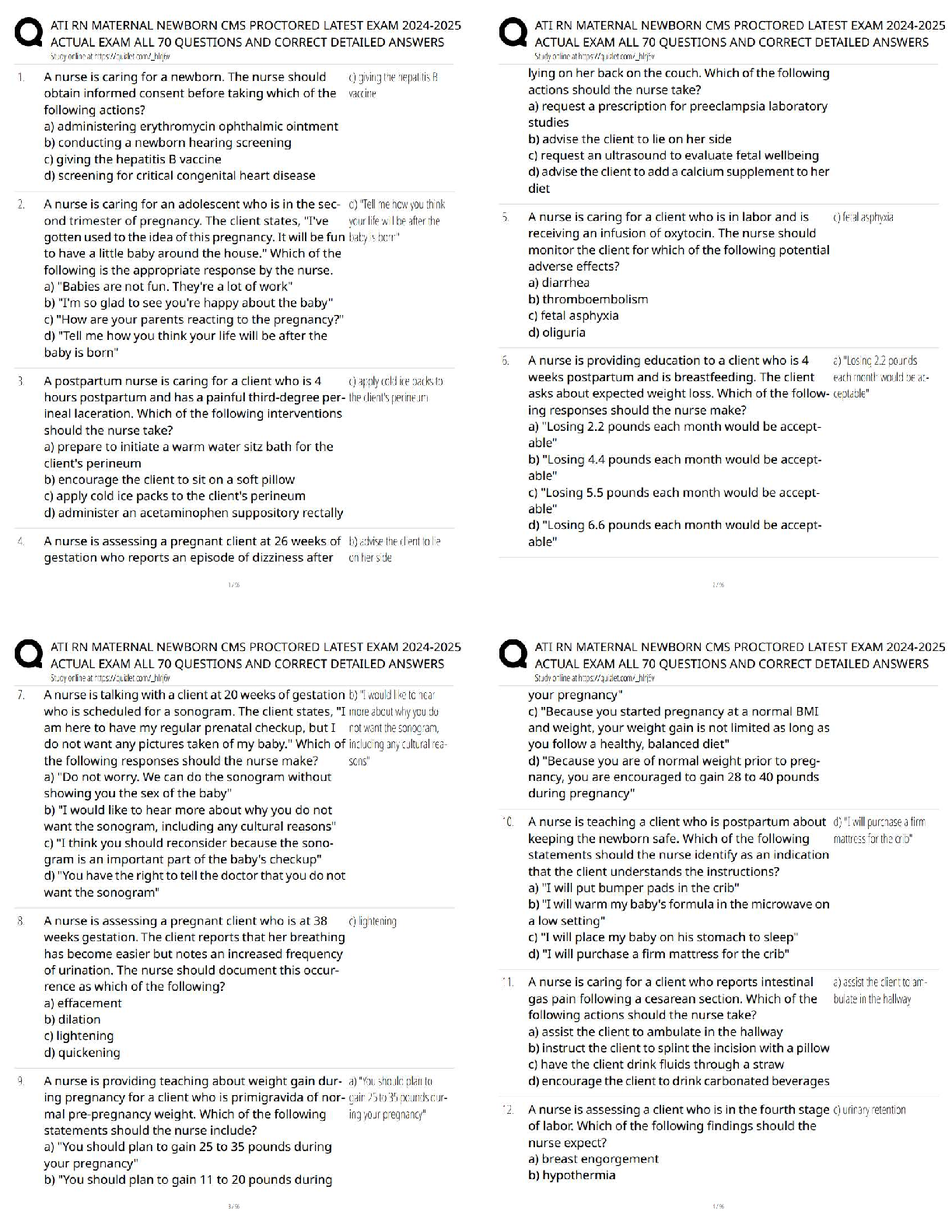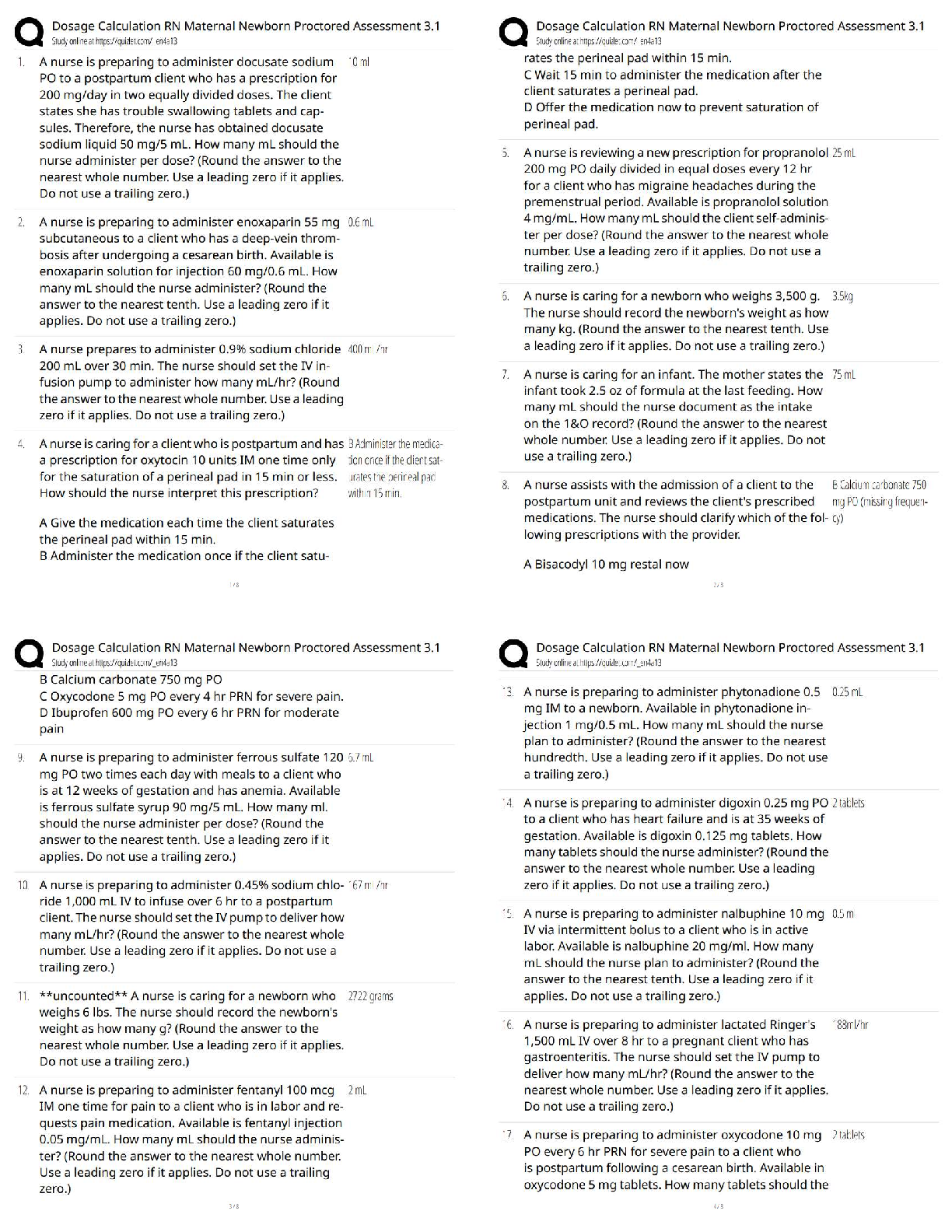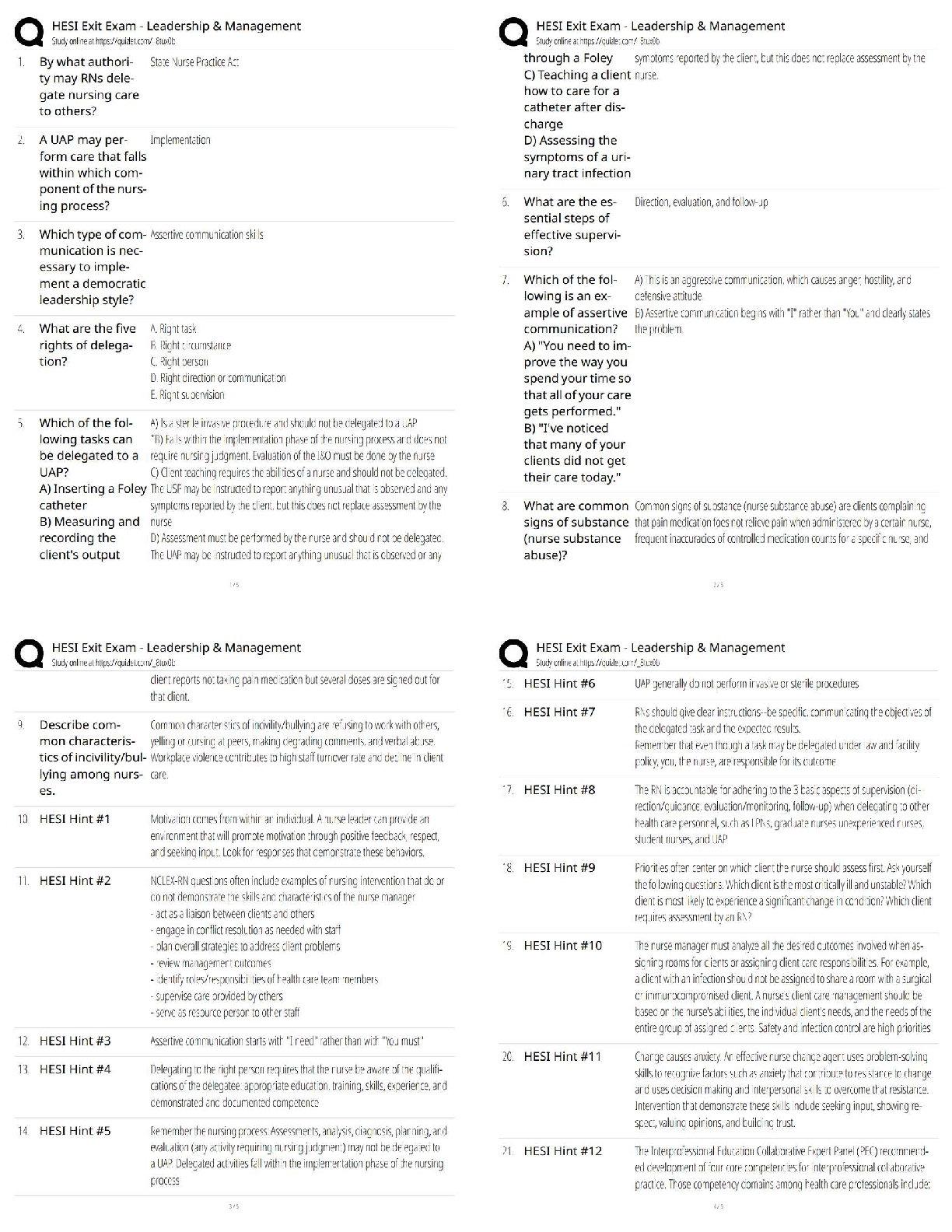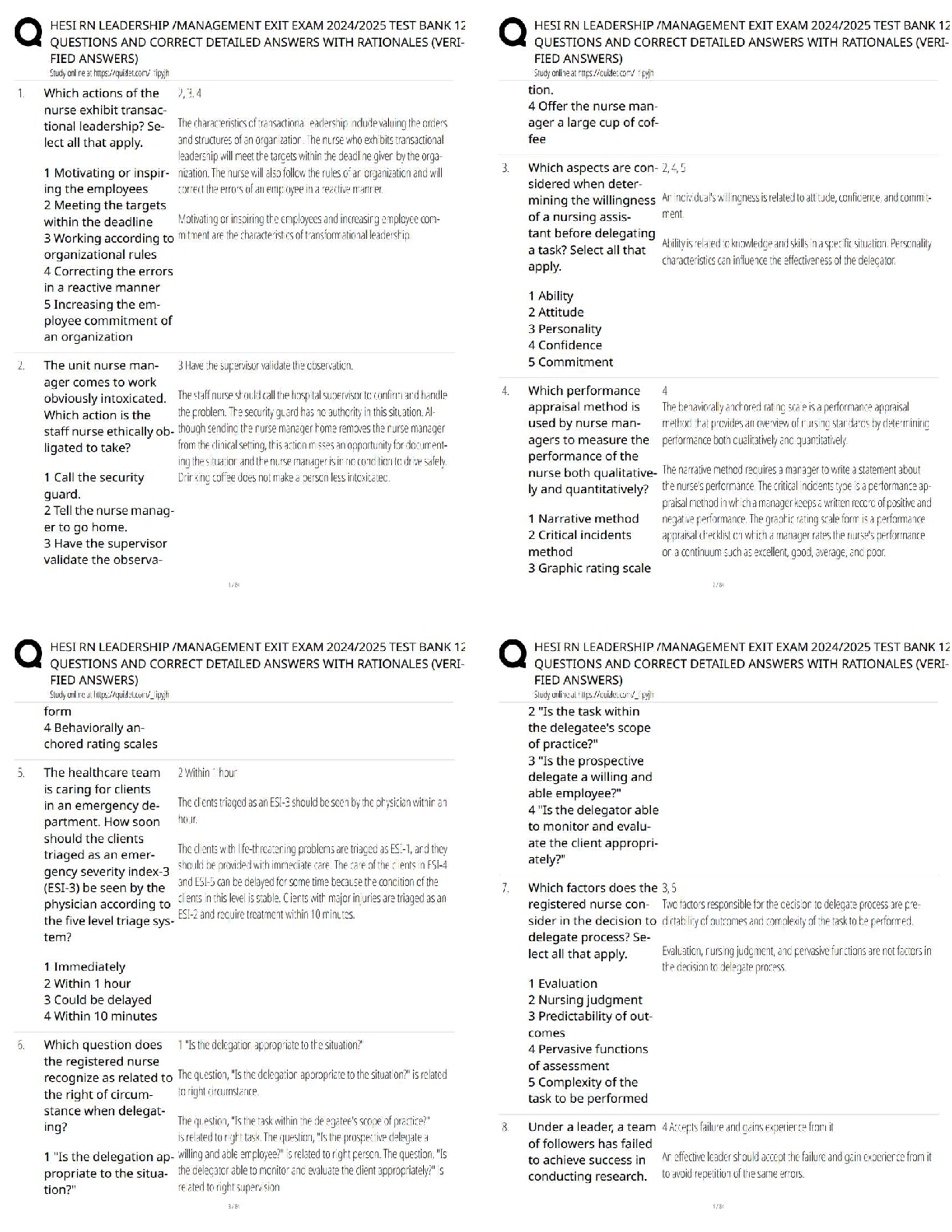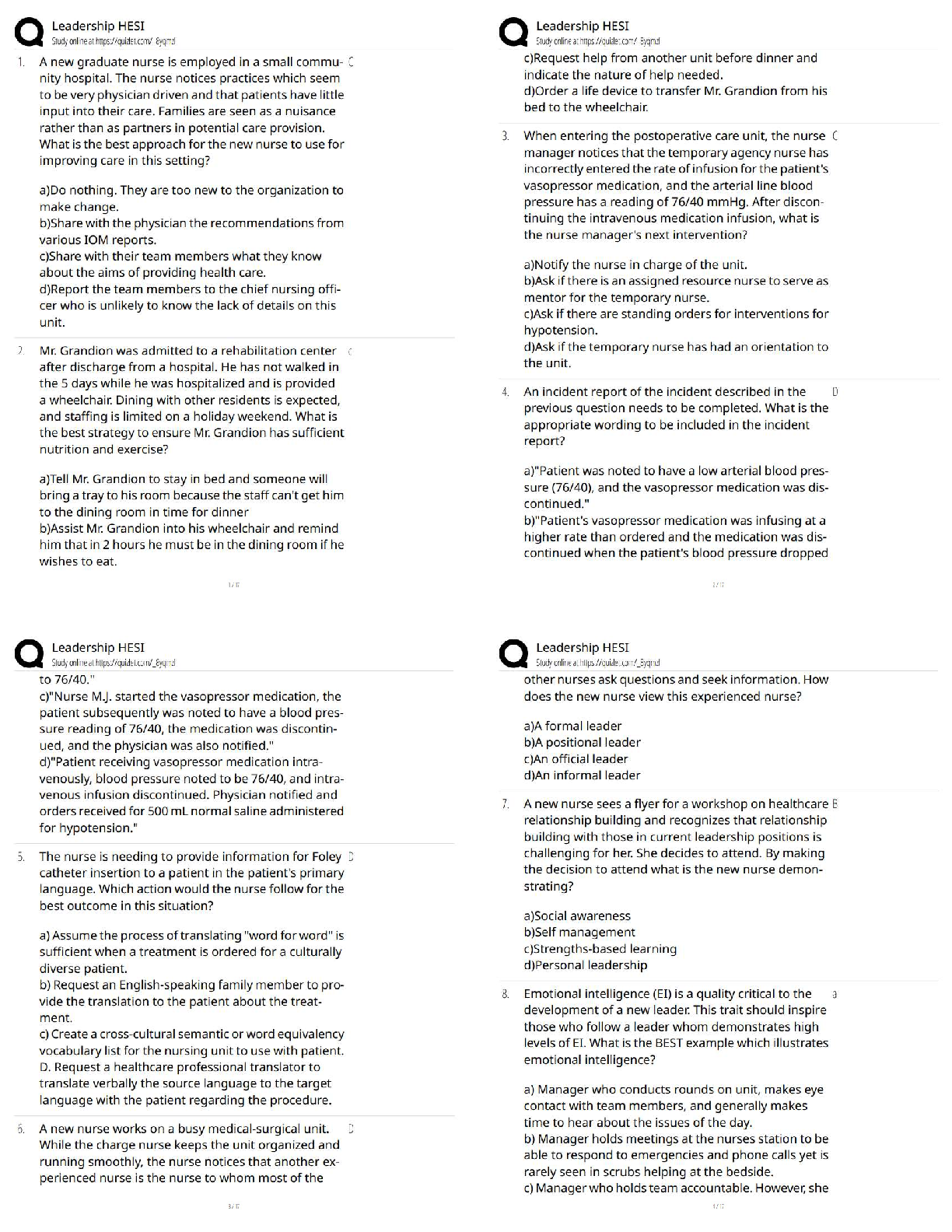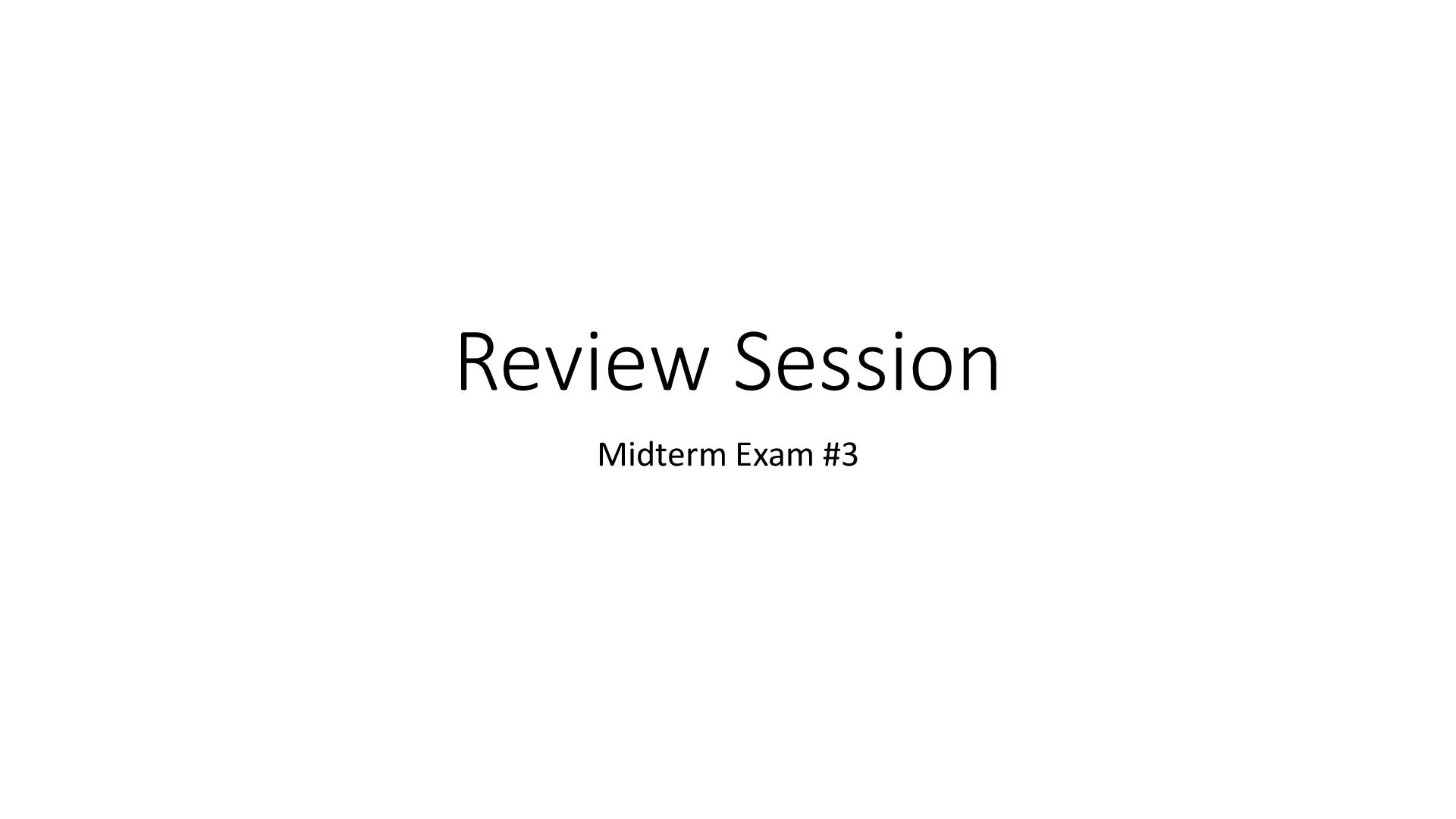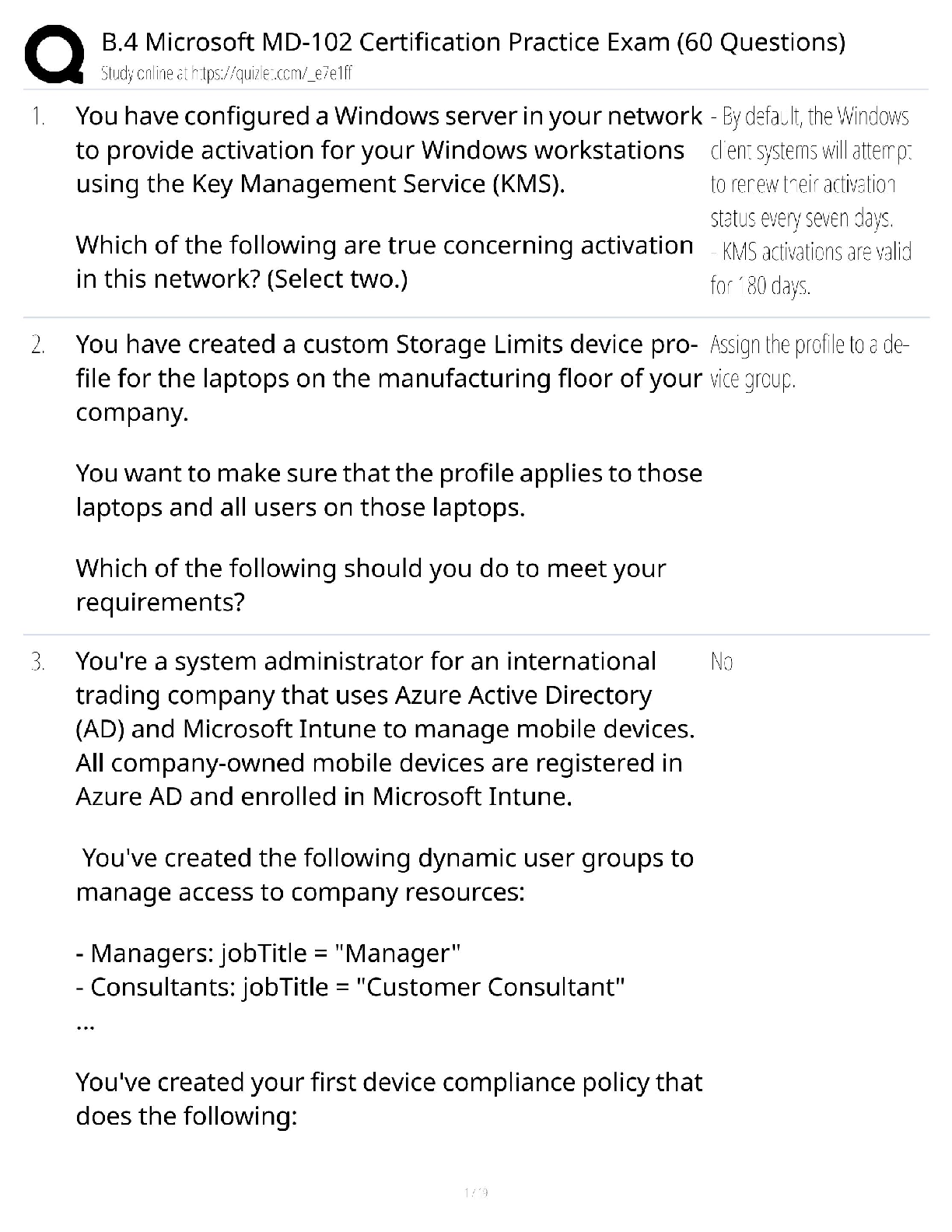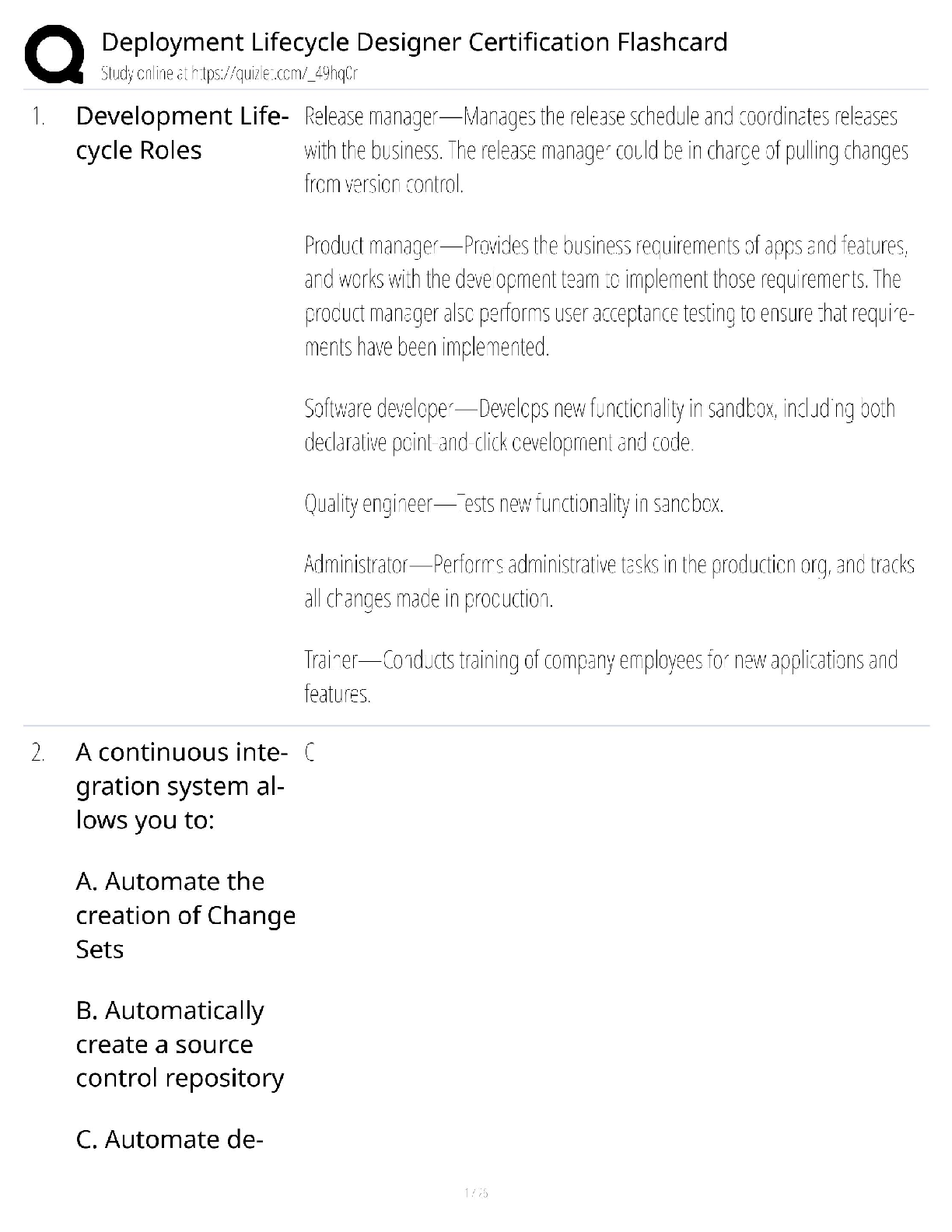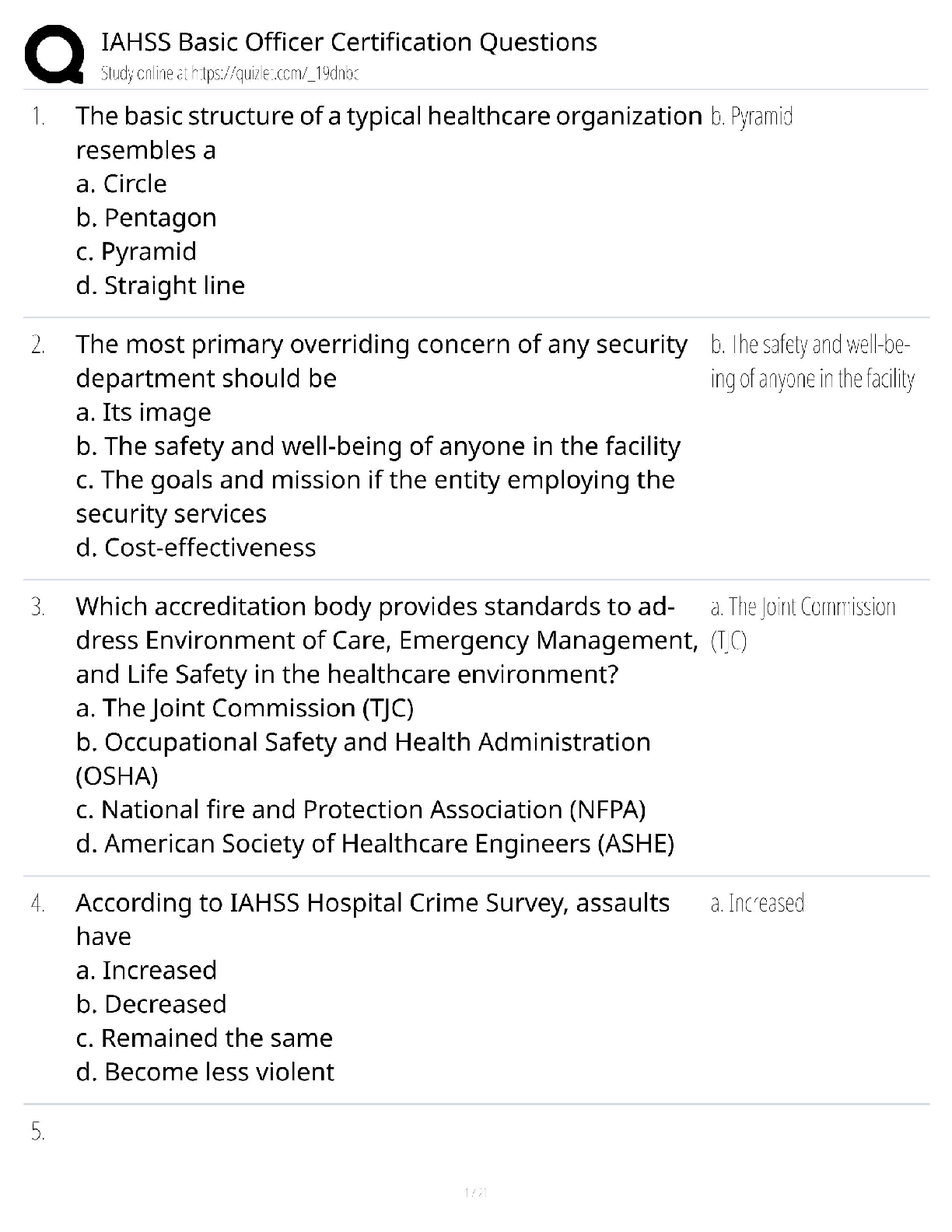*NURSING > QUESTIONS & ANSWERS > Test Bank for Leadership Roles and Management Functions in Nursing Theory and Application Eighth ALL (All)
Test Bank for Leadership Roles and Management Functions in Nursing Theory and Application Eighth ALL ANSWERS 100% CORRECT GURANTEE GRADE A+
Document Content and Description Below
1. Which represents the management functions that are incorporated into the management process? 1. A) Planning, directing, organizing, staffing, and evaluating 2. B) Planning, organizing, staf ... fing, directing, and controlling 3. C) Organizing, planning, staffing, directing, and evaluating 4. D) Organizing, staffing, planning, implementing, and controlling Ans: B Feedback: Management functions include planning, organizing, staffing, directing, and controlling. These are incorporated into what is known as the management process. 2. What 1. A) Meeting worker satisfaction 2. B) Delineating barriers to productivity 3. C) Using a laissez-faire approach 4. D) Encouraging employee participation Ans: B Feedback: Classical, or traditional, management science focuses on production in the workplace and on delineating organizational barriers to productivity. Little attention was given to worker job satisfaction, and workers were assumed to be motivated solely by economic rewards. does traditional management science focuses upon? 3. What 1. A) Workers will naturally put forth effort 2. B) Workers need threats to be motivated 3. C) Workers are diligent and responsible 4. D) Workers are in tune with organizational needs Ans: B Feedback: Theory X managers believe that their employees are basically lazy, need constant supervision and direction, and are indifferent to organizational needs. assumption about workers does Theory X hold? Page 1 4. What does the Hawthorne effect implied about people? A) Human beings under investigation will respond to the fact that they are being studied B) Production will increase or decrease as light in a factory is increased or decreased C) Membership in small groups forms social control D) People are inherently good and will seek out work Ans: A Feedback: Hawthorne effect indicated that people respond to the fact that they are being studied, attempting to increase whatever behavior they feel will continue to warrant the attention. The other statements do not reflect implied beliefs about people. 5. Managing conflict among staff members would occur in which part of the management process? A. A) Planning B. B) Organizing C. C) Directing D. D) Evaluating Ans: C Feedback: Directing sometimes includes several staffing functions. However, this phase’s functions usually entail human resource management responsibilities, such as motivating, managing conflict, delegating, communicating, and facilitating collaboration. Planning encompasses determining philosophy, goals, objectives, policies, procedures, and rules; carrying out long- and short-range projections; determining a fiscal course of action; and managing planned change. Organizing includes establishing the structure to carry out plans, determining the most appropriate type of patient care delivery, and grouping activities to meet unit goals. 6. What is the idea that workers should be hired, trained, and promoted based on their competence and abilities related to? 1. A) Part of the management functions identified by Fayol 2. B) The result of the human relations studies 3. C) The outcome of studies done by Mayo at the Hawthorne Works 4. D) One of the four overriding principles of scientific management Ans: D Feedback: Frederick Taylor, the ìfather of scientific management,î had the idea that workers should be hired, trained, and promoted based on their competence and abilities. This concept is not associated with any of the other options. Page 2 7. Max Weber, a well-known German sociologist, began to study large-scale organizations to determine what made some more efficient than others. What was his conclusion? 1. A) Workers had to have a say in management to work most effectively 2. B) Consistent rules and regulations for workers increased efficiency 3. C) Employees should feel appreciated and valued 4. D) Workers need frequent rest periods to increase overall production Ans: B Feedback: Weber saw the need for legalized, formal authority and consistent rules and regulations for personnel in different positions. He thus proposed bureaucracy as an organizational design. None of the other options reflect his conclusions. 8. Which leadership style maintains strong control over the work group and uses coercion to motivate others? 1. A) Authoritarian 2. B) Democratic 3. C) Laissez-faire 4. D) A contingency approach Ans: A Feedback: Lewin identified three common leadership styles: authoritarian, democratic, and laissez- faire. Authoritarian leadership results in well-defined group actions that are usually predictable, reducing frustration in the work group and giving members a feeling of security. Productivity is usually high, but creativity, self-motivation, and autonomy are reduced. Authoritarian leadership is frequently found in very large bureaucracies such as the armed forces. Coercion to motivate is not associated with the other options. 9. Which statement about situational or contingency leadership theory is correct? 1. A) High relationship behavior is much more essential to a good manager than high task behavior 2. B) This leadership model is effective in bureaucratic organizations because it is task focused [Show More]
Last updated: 3 years ago
Preview 1 out of 11 pages

Buy this document to get the full access instantly
Instant Download Access after purchase
Buy NowInstant download
We Accept:

Reviews( 0 )
$11.00
Can't find what you want? Try our AI powered Search
Document information
Connected school, study & course
About the document
Uploaded On
Oct 03, 2021
Number of pages
11
Written in
All
Additional information
This document has been written for:
Uploaded
Oct 03, 2021
Downloads
0
Views
120




